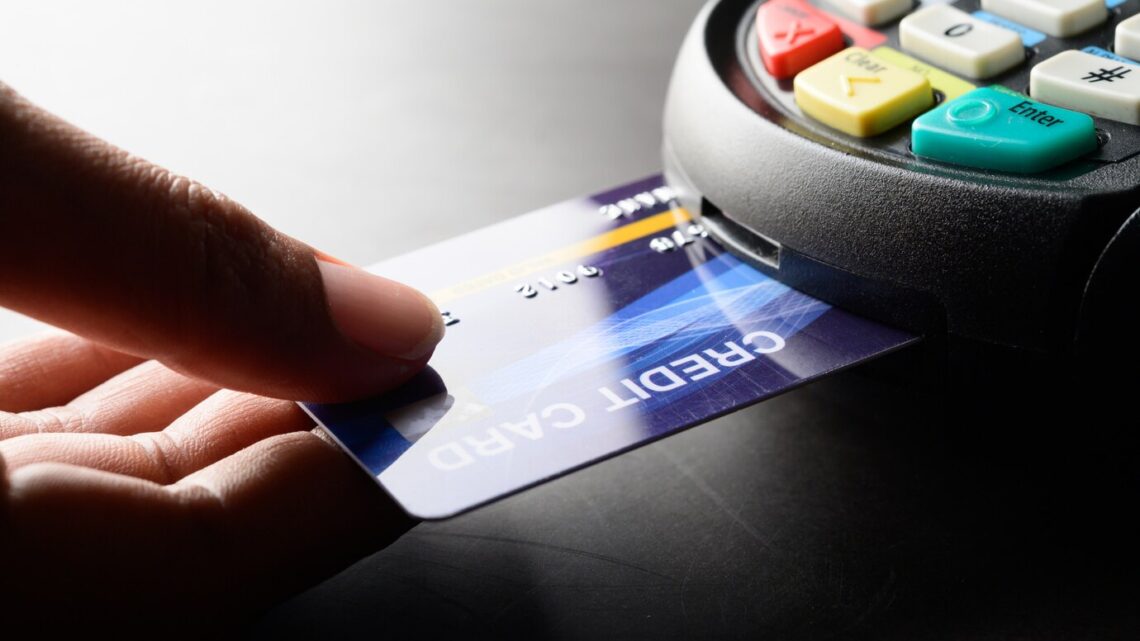Embarking on a new adventure abroad is an exciting chapter, but leaving behind unresolved financial matters can cast a shadow on your fresh start. Unpaid credit card debt in the Philippines might seem like a distant concern, but its consequences can reach across borders. Before crossing that departure gate, ensure you’re equipped with the knowledge to navigate this potential predicament. Understand the legal implications, discover solutions for rectifying the situation, and learn how to protect your credit score and future financial prospects.
General Information about the Use of Credit Cards in the Philippines:
The prevalence of credit card usage in the Philippines is indicative of a dynamic financial landscape where these plastic cards have become ubiquitous tools for managing personal finances. The allure of credit cards lies in their convenience, providing users with a cashless payment option that extends beyond physical boundaries. Here are some key facets to consider:
- Diverse Range of Credit Card Products: Financial institutions in the Philippines offer an extensive array of credit card products, each designed to cater to different consumer needs and preferences. These cards come with varying features, including rewards programs, cashback incentives, travel perks, and promotional offers, enticing a broad spectrum of users.
- Usage Patterns Across Sectors: Credit cards are not limited to a specific sector of society. Instead, they are utilized across various demographics, from urban professionals and business owners to students and young adults. The flexibility of credit cards allows users to adapt them to their specific lifestyles, contributing to their widespread adoption.
- Economic Impact: The use of credit cards contributes significantly to the Philippine economy by fostering consumer spending. This economic impact is reflected in various sectors, including retail, hospitality, and e-commerce. The availability of credit facilitates larger purchases and promotes financial liquidity, contributing to economic growth.
- Educational Initiatives: Recognizing the importance of responsible credit card usage, financial institutions in the Philippines often engage in educational initiatives. These programs aim to inform cardholders about prudent financial management, emphasizing the significance of timely repayments, understanding interest rates, and avoiding overindebtedness.
- Technological Advancements: The Philippines has witnessed a rapid adoption of digital technologies in the financial sector, and credit cards play a pivotal role in this transition. With the rise of online transactions, contactless payments, and mobile banking apps, credit cards have seamlessly integrated into the digital ecosystem, providing users with enhanced convenience and security.
- Regulatory Framework: The use of credit cards in the Philippines is governed by the regulatory framework established by the Bangko Sentral ng Pilipinas (BSP), the country’s central bank. This framework ensures the protection of consumers, sets standards for responsible lending practices, and outlines the procedures for dispute resolution.
Understanding the multifaceted nature of credit card usage in the Philippines is essential for both consumers and financial institutions. While credit cards offer numerous benefits, it is crucial for users to exercise financial discipline and stay informed about their rights and responsibilities to navigate the complexities of the credit landscape effectively.
Legal Implications of Unpaid Credit Card Debts in the Philippines:
The legal implications of unpaid credit card debts in the Philippines are significant, and understanding the framework is crucial for individuals facing financial challenges. In order to provide a clearer understanding of the legal consequences, here’s a simplified table summarizing the key points:
| Legal Consequence | Description | Resolution Options |
| Civil Cases | Credit card companies can file civil cases to obtain a court judgment for the repayment of outstanding debt. | Negotiate a repayment plan, consider debt consolidation |
| Blacklisting | Non-payment may result in blacklisting with credit bureaus, affecting the individual’s creditworthiness. | Communicate with credit card companies, settle debts |
| Criminal Liability | In cases of fraud or intentional evasion, debtors may face criminal charges, leading to fines or imprisonment. | Seek legal advice, cooperate with authorities |
The legal landscape is primarily governed by the Bangko Sentral ng Pilipinas (BSP), which regulates financial institutions, including credit card companies. Here’s an in-depth look at the legal consequences:
- Civil Cases: Unpaid credit card debts can lead credit card companies to pursue civil cases against debtors. The legal process involves the filing of a case in court, and if successful, it results in a court judgment. This judgment may grant the credit card company the authority to seize assets or garnish wages to recover the outstanding debt.
- Blacklisting: Failure to settle credit card debts may lead to the blacklisting of the individual with credit bureaus. Being blacklisted negatively impacts the individual’s credit score, making it difficult to secure loans or other financial services in the future. This can have long-lasting consequences on one’s financial reputation.
- Criminal Liability: In extreme cases, such as instances of fraud or intentional evasion, credit card debtors may face criminal charges. Criminal liability can lead to fines, imprisonment, or both. The severity of the charges depends on the circumstances surrounding the debt and whether criminal intent is proven.
It’s essential for individuals to be aware of these legal implications and to seek professional advice if they find themselves unable to meet their credit card payment obligations. Open communication with credit card companies and a proactive approach to resolving debts can often mitigate the severity of legal consequences.
Leaving the Philippines: Impact on Unpaid Credit Card Debts:
Leaving the Philippines does not exempt individuals from the reach of credit card companies seeking to recover unpaid debts. The impact extends beyond national borders, as credit card companies often possess the means to pursue legal actions internationally. The existence of reciprocal agreements or legal frameworks between the Philippines and the destination country can empower creditors to enforce judgments abroad. Consequently, individuals should be aware that the act of leaving the country does not provide immunity from potential legal consequences.
Cross-Border Cooperation
The interconnectedness of the global financial system allows credit card companies to leverage international treaties and agreements. Cooperation between countries facilitates the enforcement of judgments related to financial matters. This means that even if an individual relocates, credit card companies may still engage in legal actions in the debtor’s current country of residence. It is crucial for individuals to understand the potential for cross-border collaboration and the implications this may have on their financial situation.
Communication with Credit Card Companies
Maintaining open communication with credit card companies is a prudent step for individuals leaving the Philippines with unpaid credit card debts. Informing creditors about plans to relocate and providing a forwarding address demonstrates a commitment to addressing the debt. This proactive approach can create opportunities for negotiation, potentially leading to mutually agreeable repayment plans or settlements. Open dialogue can be a key factor in mitigating the severity of legal actions and fostering a cooperative resolution process.
Leaving the Philippines with unpaid credit card debts requires a nuanced understanding of the legal and financial implications involved. Proactive communication and a willingness to address outstanding obligations can significantly influence the outcome, potentially allowing individuals to navigate this complex situation more effectively.
Options for Managing and Resolving Unpaid Credit Card Debts:
When faced with unpaid credit card debts, individuals departing the Philippines have several options for managing and resolving their financial obligations. Each option varies in terms of feasibility and impact on credit standing. Here, we delve into the available choices:
- Negotiate with Credit Card Companies: Initiating a direct conversation with credit card companies is often the first and crucial step. Many credit card issuers are willing to negotiate with debtors to establish more manageable repayment plans or explore the possibility of settling the debt for a reduced amount. Communicating openly about financial constraints can pave the way for mutually beneficial agreements.
- Debt Consolidation: For those dealing with multiple debts, consolidating them into a single, more manageable payment plan might be an option. Debt consolidation loans or programs can streamline repayments, potentially lowering interest rates and simplifying the overall debt management process.
- Seek Professional Advice: Consulting with a financial advisor or credit counseling service can provide valuable insights and personalized advice. Professionals in this field can assess an individual’s financial situation, recommend appropriate courses of action, and guide them through the process of resolving credit card debts.
- Asset Liquidation: In extreme cases where the debt burden is significant, individuals may need to consider liquidating assets to settle outstanding debts. This involves selling property or other valuable possessions to generate funds for repaying credit card debts. However, this option should be approached cautiously, considering both short-term and long-term financial implications.
- Explore Legal Alternatives: Understanding one’s legal rights and exploring legal alternatives is essential. In some instances, individuals may benefit from seeking legal advice to assess the validity of the debt, especially if there are concerns about fraudulent activities or unfair practices by credit card companies.
- Credit Counseling Programs: Engaging with credit counseling programs can provide structured assistance in managing debts. These programs often involve creating a budget, negotiating with creditors on behalf of the debtor, and providing financial education to prevent future financial challenges.
Each of these options comes with its own set of considerations, and the most suitable approach depends on the individual’s financial circumstances and preferences. It’s essential to carefully weigh the pros and cons of each option and, if necessary, seek professional guidance to make informed decisions. Remember, proactive engagement and a commitment to resolving the debt are crucial elements in successfully managing unpaid credit card debts.

